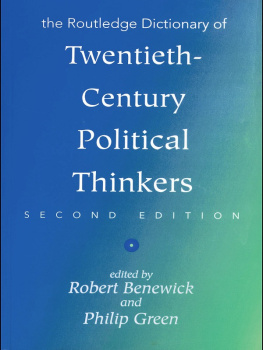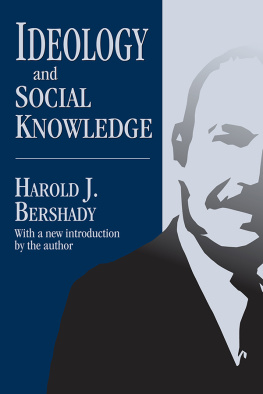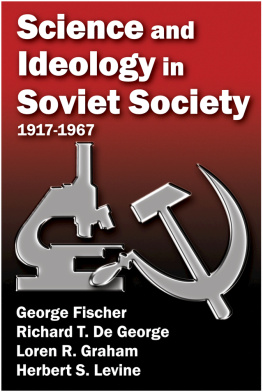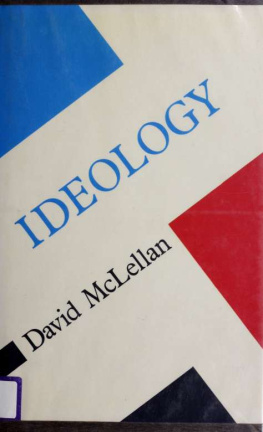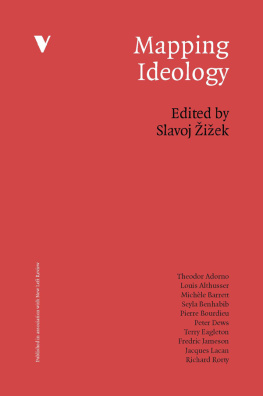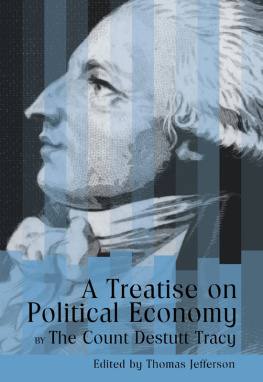ROUTLEDGE LIBRARY EDITIONS:
POLITICAL THOUGHT AND POLITICAL PHILOSOPHY
Volume 6
KNOWLEDGE AND BELIEF IN POLITICS
KNOWLEDGE AND BELIEF IN POLITICS
The Problem of Ideology
Edited by
ROBERT BENEWICK, R. N. BERKI AND
BHIKHU PAREKH
First published in 1973 by George Allen & Unwin Ltd
This edition first published in 2020
by Routledge
2 Park Square, Milton Park, Abingdon, Oxon OX14 4RN
and by Routledge
52 Vanderbilt Avenue, New York, NY 10017
Routledge is an imprint of the Taylor & Francis Group, an informa business
1973 George Allen & Unwin Ltd
All rights reserved. No part of this book may be reprinted or reproduced or utilised in any form or by any electronic, mechanical, or other means, now known or hereafter invented, including photocopying and recording, or in any information storage or retrieval system, without permission in writing from the publishers.
Trademark notice: Product or corporate names may be trademarks or registered trademarks, and are used only for identification and explanation without intent to infringe.
British Library Cataloguing in Publication Data
A catalogue record for this book is available from the British Library
ISBN: 978-0-367-21961-1 (Set)
ISBN: 978-0-429-35434-2 (Set) (ebk)
ISBN: 978-0-367-24595-5 (Volume 6) (hbk)
ISBN: 978-0-429-28337-6 (Volume 6) (ebk)
Publishers Note
The publisher has gone to great lengths to ensure the quality of this reprint but points out that some imperfections in the original copies may be apparent.
Disclaimer
The publisher has made every effort to trace copyright holders and would welcome correspondence from those they have been unable to trace.
Knowledge and Belief in Politics
The Problem of Ideology
Edited by
ROBERT BENEWICK
R. N. BERKI
BHIKHU PAREKH
First published in 1973
This book is copyright under the Berne Convention. All rights are reserved. Apart from any fair dealing for the purpose of private study, research, criticism or review, as permitted under the Copyright Act, 1956, no part of this publication may be reproduced, stored in a retrieval system, or transmitted, in any form or by any meallli, electronic, electrical, chemical, mechanical, optical, photocopying, recording or otherwise, without the prior permission of the copyright owner. Enquiries should be addressed to the publishers.
George Allen & Unwin Ltd 1973
ISBN 0 04 320088 5
Printed in Great Britain
in 11 point Baskerville type
By T. and A. Constable Ltd
Hopetoun Street, Edinburgh
Few concepts in the modern age have created more controversy in the discussion of social, moral and political issues than that of ideology. Ever since Destutt de Tracy coined the term ideology to refer to a scientific study of the origin of ideas, its meaning has predictably undergone a series of historical mutations. While some nineteenth-century thinkers equated ideology with idealism, Marx used it to describe distorted and false consciousness. Following Marx, Karl Mannheim used the term to characterize a body of ideas determined by the thinkers social background. Not very long ago Hannah Arendt employed it to refer to ways of looking at man and society which explain political and social life in terms of one idea. More recently its meaning has undergone further dilutions and now it refers to almost any organized body of beliefs.
Amidst these and other changes in the meaning of the term ideology, it is possible to detect a cluster of certain common preoccupations. At the most basic level the problem of ideology is a problem about the nature of truth and objectivity. Is human reason capable of knowing the truth, of comprehending reality as it is? Or is its approach to reality necessarily influenced by the thinkers values, personal or class interests and personal or social prejudices? Is human reason, to go a step further, a culturally neutral instrument, or is it a socially acquired capacity that is deeply permeated by the categories of thought characteristic of a particular historical epoch or society or class or some other social grouping? At another level the problem of ideology is about the internal structure and rationale of specific ideologies. How are the various beliefs that compose an ideology held together? Do they form a logically coherent whole? Or are they a disparate bundle of beliefs, bound together by nothing more than their adherents firm conviction that they do logically hang together? At the third level are questions about the role and function of ideology in human affairs. Why do particular ideologies have a strong appeal for particular societies and particular sections of them? How does an ideology command and hold the loyalty of its members? Do human societies need ideologies to hold them together? Do developing societies need them more than those already established? How does an ideology influence the way a nation formulates its foreign policy or its pattern of economic development or its social structure?
These and other problems constitute the principal concerns of the essays comprising this volume. As there is sufficient literature on the history of the concept of ideology we thought it best to concentrate on other equally important issues. The opening essays analyse some general philosophical problems encountered in the study of ideology, either independently or in relation to specific thinkers. Other contributions initially examine specific ideologies like pluralism, federalism, conservatism, socialism, apartheid and racialism. The role of ideology in holding societies together and in determining its domestic and foreign policies is examined in the remaining essays. We are only too aware that there are other topics which could have also been profitably discussed in the volume. We would have liked, for example, to include an essay dealing with the role of ideology in the natural sciences. However, we like to believe that the volume as it is covers most of the important issues connected with the question of ideology.
The volume grew out of a series of seminars organized by the Department of Political Studies, University of Hull, during the session 19712. We are grateful to Professor C. H. Dodd for his encouragement and support and to the University of Hull for the financial assistance which made the organization of the seminars possible. We are also indebted to our colleagues who participated in the seminars and to our contributors both for presenting the papers at the seminars and for revising them for this collection. In every way this has been a cooperative effort.
Robert Benewick
R. N. Berki
Bhikhu Parekh
Contents
I start from the assumption, which I had better make explicit, that the problem posed by the title of this paper is peculiar to the social, as opposed to the physical and biological, sciences. There is a sense in which these can, if you wish, be said to have a problem of ideology too. If, in the manner of T. S. Kuhn or, before Kuhn, of N. R. Hanson, I take it for granted in any case that there is a difference between a set of connected scientific laws and a Weltanschauung; that scientific theories, however haphazard the process by which they are arrived at and however provisional their status at any given time, stand or fall by being publicly tested against potentially disconfirming evidence; and that scientific progress can roughly be described as a cumulative demonstration that specified sets of operationally definable terms are co-extensive. The construction of wide-ranging and well-tested theories is, to be sure, the common goal of the social sciences too. But the question which this still leaves open is whether the social sciences are at the same time ideological in some way which makes them incompletely scientific in the conventional sense.



